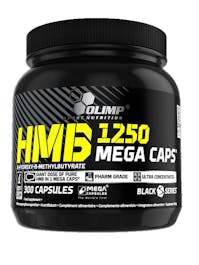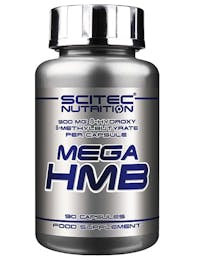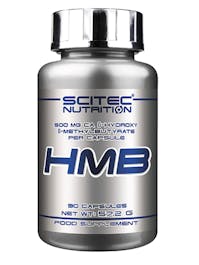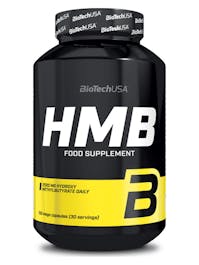β-Hydroxy β-methylbutyric acid (HMB), or β-hydroxy β-methylbutyrate, is a metabolite of the essential amino acid leucine and is synthesized in the human body. It plays a part in protein synthesis and was discovered by Dr. Steven L. Nissen at Iowa State University. It has been used in scientific studies to purportedly increase muscle mass and decrease muscle breakdown. However, Nissen held the original patent on the metabolite as a nutritional supplement. It was discovered in pigs and small quantities can also be found in grapefruit, alfalfa, and catfish. As a supplement it is usually sold as a calcium salt.
Research published in the Journal of Applied Physiology has shown that HMB may have an effect on increasing muscle weight and strength. A review in Nutrition & Metabolism provides an in depth and objective analysis of HMB research. The same study lists as HMBs proposed mechanisms of action the following:
Increased sarcolemmal integrity via conversion to HMG-CoA Enhanced protein synthesis via the mTOR pathway Depression of protein degradation through inhibition of the ubiquitin pathway Three grams of HMB per day may help muscles combat protein breakdown, assist in muscle repair and support increased endurance. Studies suggest its benefits may be greater for the untrained. Also, well-controlled scientific studies have found increases in muscle mass and decreases in body fat in 70 year old men. It has helped patients with chronic obstructive pulmonary disease in hospital intensive care units, muscle wasting associated with HIV or AIDS and with cancer, and trauma victims with severe injuries.[citation needed]
The human body produces about 0.2-0.4 grams per day. Standard doses in research studies have been 1.5 to 3.0 grams per day, usually divided into two doses.






